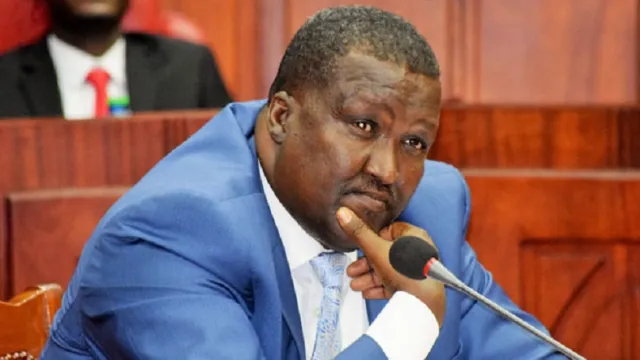Fuel prices? Please ask Munyes, Keter tells Senate

Fuel prices? Please ask Munyes, Keter tells Senate
The push by a Senate committee to investigate the sharp rise in fuel prices appears to have started on the wrong foot after Energy CS Charles Keter and his Petroleum counterpart John Munyes gave the session a wide berth.
Last week, Kenyans were hit with the highest fuel prices in history after the energy regulator announced six per cent increase in petrol prices across the country pushing the retail cost of fuel to Kes134.72 shillings for consumers in Nairobi.
A litre of Diesel and Kerosene is retailing at Kes115.60 and Kes110.82 respectively in Nairobi.
On average, Kenyans pay nearly ten different taxes on fuel products which make up the bulk of the final pump prices.
Excise duty takes the lion's share of the taxes at Kes21.95 for every litre of fuel followed closely by the road maintenance levy at Kes18.
For every litre of fuel bought, Kenyans also pay Kes9.98 in Value Added Tax as well as Kes5.40 in petroleum development levy.
Other levies that are also heaped on fuel cost before factoring in the marker's margin are: petroleum regulatory levy, railway development levy, anti-adulteration levy, merchant shipping levy as well as the import declaration fee.
Read also: Taxman back to the drawing board as court torpedoes Sh20 billion minimum tax plan
Energy CS Charles Keter said the increase in prices by the Energy and Petroleum Regulatory Authority last week does not fall under the purview of his ministry.
Mr Keter passed the bulk of responsibility to his Petroleum counterpart John Munyes who requested to meet the Senate committee on Tuesday next week.
Bungoma Senator Moses Wetangula said: "Where does CS Energy gets the audacity to say this matter does not concern him. We know both fuel and electricity costs are related. The country's is hurting.”
The sudden surge in fuel prices is set to cause ripple effects in the transportation services sparking increase in the prices of goods since manufactures and companies are likely to pass on the burden to the final consumer.
Since March, the energy regulator has been tapping the fuel price stabilization fund to put on hold the spiraling of fuel prices despite the lack of regulations to operate the scheme as the government desperately went out to keep the cost of living on short leash.



